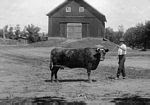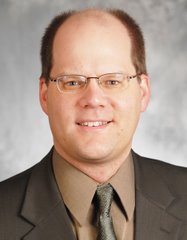Twin Cities Public TV reporter Mary Lahammer noted in her blog today that "this session will have delivered on all the biggest issues: education, health care, property taxes, transportation, and the environment." She rightly gave a huge amount of credit to the Speaker of the House, Margaret Anderson Kelliher, who has been able to lead a diverse group of Democrats and successfully negotiate among Senate leaders and the Governor. I have a lot of respect for the Speaker--she treats people like we would want to be treated. That means she uses persuasion and not arm-twisting and treats people with respect even though she might disagree with them.
This was an exhausting session, but we came to do a job and get it done. In 2006, I ran on the five topics that Mary Lahammer mentioned: education; health care; transportation; environment; and property taxes. As the 2008 session wraps up, the legislature as a whole accomplished the following:
Education
* Boosting funding for our K-12 education system by $850 million by focusing on funding state and federal special education mandates, thereby freeing up money from the state formula for other obligations and shrinking the funding disparity between Minneapolis/St. Paul and the suburbs
* Restoring the massive cuts to early childhood education programs made in 2003
* Ending the era of double-digit tuition increases at public colleges and universities
Health Care
* Providing health coverage to more than 112,000 Minnesotans, including 37,000 children
* Creating cost containment methods for those of us who have health insurance, including payment reform, investment in prevention, electronic medical records, and coordinated care for chronically ill patients
Transportation
* Passing a landmark transportation funding bill that will fix our 13 fracture-critical bridges, speed up congestion relief projects, install more suburban park-and-ride lots, and continue building a transit network
Environment
* Passing strong renewable energy legislation that will reduce our reliance on fossil fuels and reduce emissions of greenhouse gases
* Promoting more conservation and efficiency in our current energy use
* Putting a dedicated outdoor funding constitutional amendment on the ballot in November
Property Taxes
* Passing property tax relief for suburban homeowners by increasing funds for the Property Tax Refund (PTR) program
* Passing transportation bill that reduces pressure on cities and counties to levy more taxes for roads and bridges
The legislature did this and balanced the general fund budget without a general tax increase, even with a deficit of about $1 billion.
Personal achievements
Of course, I wasn't personally responsible for all of these things but I was part of a team that got it done. But I worked on a lot of things that became law or created a process for future change.
Education
* Passed legislation that resolved the Mounds View School District conflict-of-interest impasse (HF2785/SF2653, now 2008 Session Law, Chapter 176)
Health care
* Got the Health Department and hospice advocates together to make sure that homeless adults could qualify for hospice care through General Assistance Medical Care (GAMC), which helps to reduce uncompensated care at MN hospitals (HF3185)
* Introduced legislation that would help cut administrative costs for publicly funded health care programs (HF3810). This bill was just a discussion draft for next year and I will be meeting with local doctors on how to make this legislation possible in 2009.
Environment
* Passed legislation that requires public water authorities to adopt a conservation rate structure in order to promote more water conservation (part of HF3238, became part of HF1812, Article 5, Sections 20-21, passed legislature, now part of 2008 Session Law, Chapter 363)
* Passed legislation that cuts the number of duplicative reports on water supply (part of HF3238, became part of HF1812, Sections 14-16, passed legislature, now part of 2008 Session Law, Chapter 363)
* Passed legislation to fund groundwater monitoring wells in the Twin Cities metro area (HF3005, became part of HF380, now part of 2008 Session Law, Chapter 179, see Section 7, Subdivision 5)
* Passed legislation to allow more funding of algae-to-biofuel research (HF2903/SF2996, now part of 2008 Session Law, Chapter 258)
* Passed legislation to fund the final link of the Rice Creek Regional Trail in Lino Lakes (HF2461/SF2280, became part of the bonding bill-HF380-and was line-item vetoed by the Governor) [Note: Partial funding may now be available from some Metro Parks dollars still available to Anoka County through the LCCMR--lottery funds--in SF2492, Section 2, Subdivision 3(i), now part of 2008 Session Law, Chapter 367]
* Passed legislation to promote more recycling of construction waste, composting of organic household waste, and cost effective recycling of hazardous household waste (HF3540, parts moved to HF1812, Article 5, Section 3, and SF3056, Article 32-33, now part of 2008 Session Law, Chapter 363)
* Passed legislation that will make it easier for metro-area cities to start collecting compostable household waste at your curb like food scraps and non-recyclable paper (part of HF3540, then became sections 32 and 33 of HF3056, now part of 2008 Session Law, Chapter 357)
Property taxes
* After the Senate passed a tax bill that would provide property tax relief by focusing only on local government aid (LGA), I led a group of two dozen suburban legislators in promoting direct property tax relief to taxpayers through more funds for the property tax refund (PTR) program (HF4188). This idea was embraced by the House Tax Committee and was included in the final tax bill (HF3149), which passed the legislature and is now part of 2008 Session Law, Chapter 366, Article 1, Section 1 (right at the top of the bill)
Other
* Passed legislation to combat the theft of metals like copper wire and pipe from abandoned homes and utilities (HF457, became part of HF829, now 2007 Session Law, Chapter 54, Article 2 & 7)
* Passed legislation to provide predatory lending protections for owners of manufactured housing (aka mobile homes) (HF3477, now 2008 Session Law, Chapter 273)
* Passed legislation to make it easier to pay for your credit report freeze (HF1665/SF1578, now 2008 Session Law, Chapter 211)
* Passed legislation to allow Anoka County to build a new regional library in Lino Lakes (HF2763, inserted in House Tax Bill-HF3149, passed legislature, now part of 2008 Session Law, Chapter 366, Article 5, Section 10-search on "Anoka")
* Passed legislation to confirm what is covered as "court costs" for legal advocates representing low-income Minnesotans (HF1895/SF1700, included in HF829, passed legislature, now part of 2007 Session Law, Chapter 54, Article 5, Section 16)
* Passed legislation updating the "cold weather rule" that requires utilities to turn the heat back on for Minnesotans who originally didn't pay their bills but later set up a payment plan with the utility (HF2097/SF1857, included in SF2096, Article 2, Section 13, now part of 2007 Session Law, Chapter 57, Article 2, Section 13)



